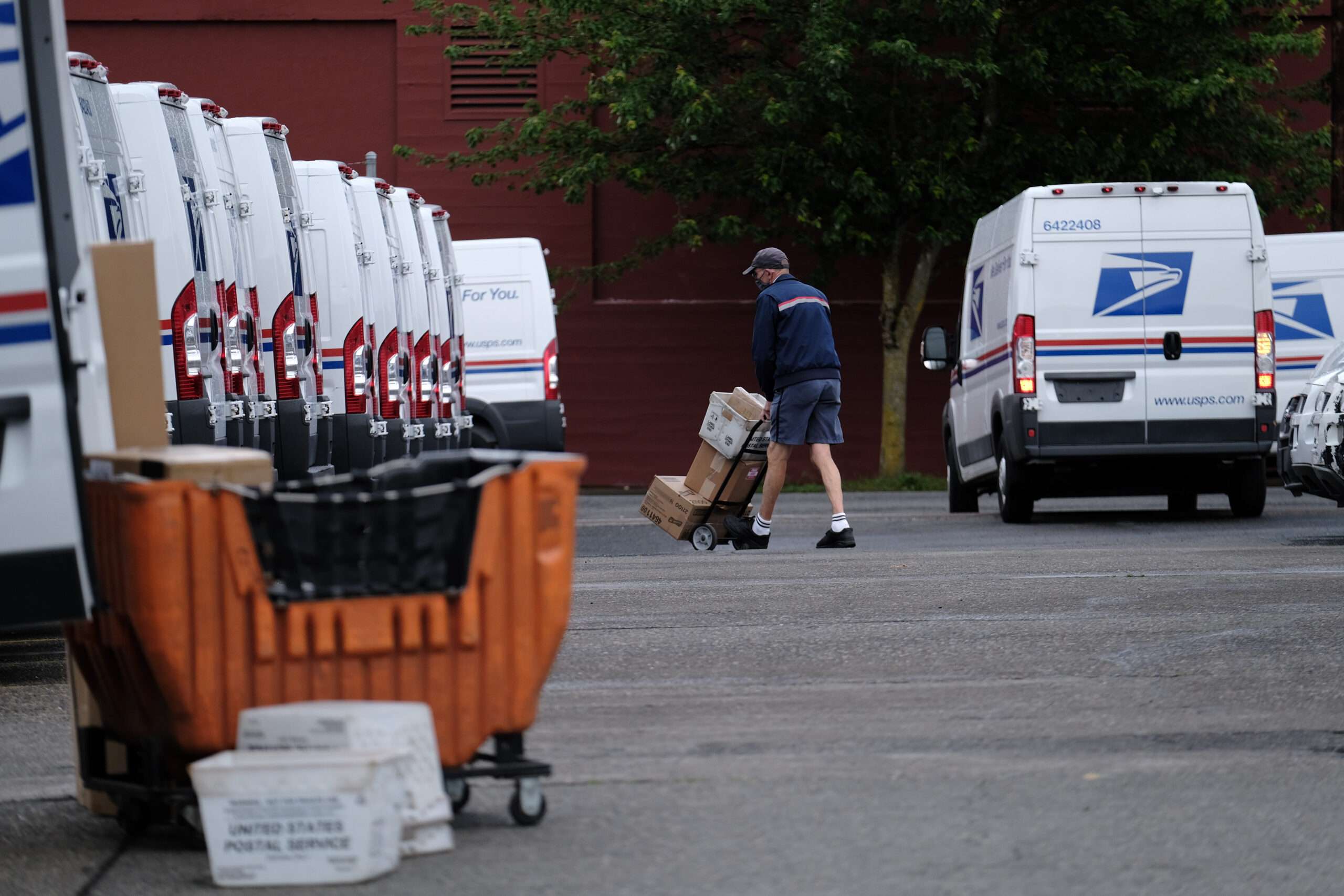Watchdog Report: USPS Still Failing To Secure Facility That Was Robbed Twice in 2023

According to a new inspector general report[1], the United States Postal Service (USPS) is having trouble keeping its assets safe. The USPS has over 235,000 vehicles[2]. More than 140,000 of them are Long Life Vehicles[3] (LLVs), those boxy trucks with a sliding side door and the steering wheel on the right.
The USPS last purchased LLVs in 1994, and despite their name, the trucks were only expected[4] to last 24 years, meaning each one should have been retired by 2018 at the latest. In December 2022, the agency announced[5] that it would replace its mail trucks with a fleet of electric vehicles (E.V.s). The USPS would spend £9.6 billion--including £3 billion apportioned by Congress as part of the Inflation Reduction Act--on new trucks as well as the chargers to service them.
A report by the USPS Officer of the Inspector General released last week found[6] that officials at the Material Distribution Center (MDC) in Kansas, the USPS facility where prototype chargers were being stored and tested, "did not employ necessary physical safety measures designed to protect and deter the theft of Postal Service assets." Many of the specifics are redacted, but in March 2023, inspectors say, "MDC officials discovered that Postal Service information technology assets were stolen" from one facility. In March and April, officials "replac[ed] locks and eight exterior doors" but did not implement all of the security measures that postal inspectors recommended after the break-in. "Despite the theft," the report continued, "and without implementing crucial remediation measures identified in the Inspection Service assessment, the Postal Service began storingcharging stations in [redacted] when the first 2,000 units arrived in April 2023." The following month, the same facility "was again burglarized, resulting in additional losses to the Postal Service, including the theft of charging station heads...and other information technology assets, such as monitors, printers, and docking stations."
As a result of "insufficient safeguards," the report determined that "the Postal Service incurred two thefts and losses of approximately £59,700 in information technology assets (e.g., computer monitors, printers, and docking stations) and £7,700 from two charging station heads." After the second burglary, MDC officials again replaced locks and contracted with off-duty law enforcement officers to patrol the area. Even so, "these measures still do not ensure" that the facility "is in compliance with Postal Service policy requiring physical safeguards or limiting unauthorized access to Postal Service assets."
The report noted that USPS policy would have required the MDC to implement a series of further security measures, including installing security cameras and an "intrusion detection system." As if that wasn't bad enough, a footnote mentioned that "Postal Service officials at the MDC were aware of general security related issues occurring as recently as four years ago in the same industrial park, which resulted in the loss of thousands of dollars' worth of tools and equipment suffered by prior tenants." Nonetheless, "despite several security-related incidents, MDC officials did not view" the facility "as an at-risk, administrative facility that necessitated urgent mitigating actions." The USPS has struggled in recent years.
Even before the COVID-19 pandemic, it experienced[7] consistent declines in revenue even as it sat on tens of billions of dollars in unfunded pension liabilities.
The USPS delivery system is optimized[8] for paper mail over packages, even though the advent of e-commerce means that more people are ordering packages and fewer are sending and receiving letters.
Given such a long record of subpar performance, it should come as no surprise that the USPS failed to do so much as even install a security camera to protect its own assets.